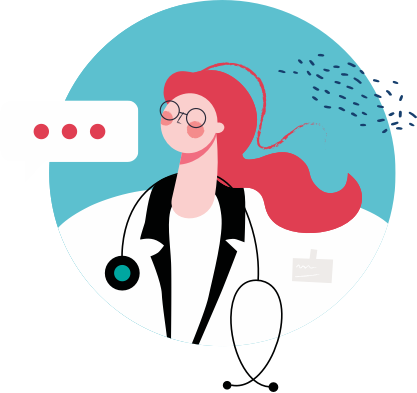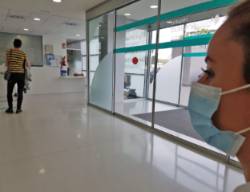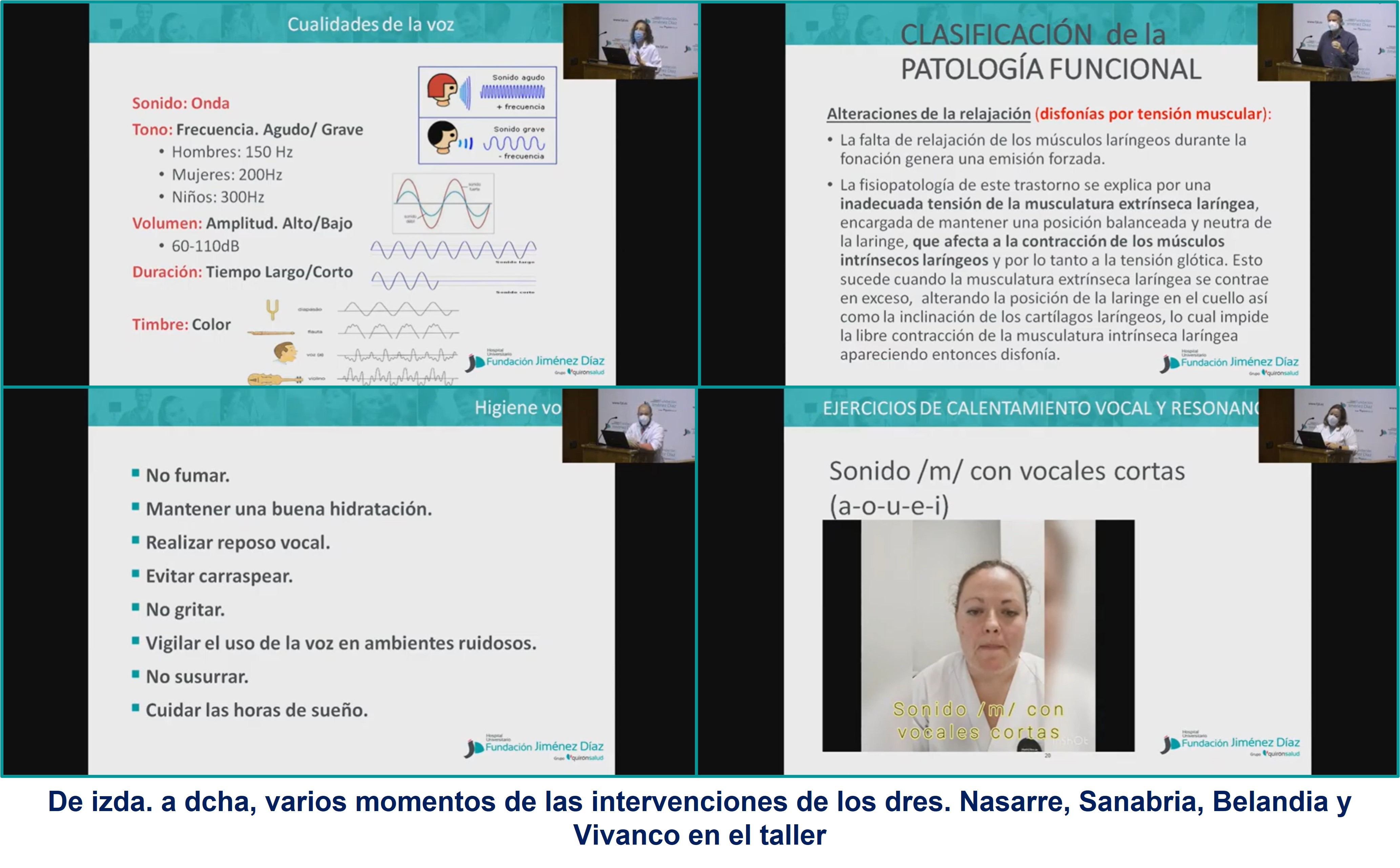Speech therapy
We tell you everything you need to know about speech therapy, from the main conditions it treats to the most effective treatments to address them. Explore the different subspecialities of speech therapy that exist and which are the leading therapies today. Book your appointment with the speech therapist at one of our hospitals.

What is speech therapy?
Speech therapy focuses on the diagnosis and treatment of diseases resulting from voice, language, speech or hearing disorders. It also deals with disorders affecting swallowing and orofacial functions. This way, we can improve our patients’ communication abilities and quality of life.
What does speech therapy study?
The field of study of speech therapy is very broad, as it is not only concerned with prevention, diagnosis and treatment, but also with rehabilitation procedures and patient counselling. In addition, it focuses on various areas that require subspecialisation in order to offer the most suitable therapy in each case:
- Voice unit focuses on the prevention and treatment of voice-related pathologies resulting from vocal abuse or misuse. Professionals who use the voice as a working tool (teachers, radio broadcasters, etc.) particularly benefit from this treatment.
- Speech unit: deals with speech difficulties caused by lack of fluency or phonological and articulation disorders caused by orofacial problems, brain damage or neurodegenerative diseases.
- Language unit: addresses problems in communicating both orally and in writing caused by brain damage, learning delays or neurodevelopmental disorders.
- DYSPHAGIA unit: treats orofacial and myofunctional disorders that hinder breathing, swallowing or sucking. They interfere physiologically with swallowing.
- Hearing unit: deals with language disorders, speech difficulties and voice disorders resulting from various types of hearing loss.
Which patients is it for?
Early childhood population (0-6 years), infants and children, adults and the elderly with orofacial alterations, swallowing, communication, voice, speech, hearing and language difficulties.
Our team of speech therapists treats both young people, helping and accompanying them in their development, as well as the adult population with any type of difficulty or pathology in communication, speech, hearing, language or swallowing difficulties.
Techniques, procedures and diagnostic methods
Given the different approaches we use and the various pathologies we treat; at Quirónsalud we can offer a wide variety of speech therapy treatments. The most prominent treatments include:
- Standardised tests: we use a series of standardised tests to diagnose pathologies, assess phonology, morphosyntax and lexical-semantic level.
- Orofacial and myofunctional therapy: used to prevent and rehabilitate dysfunctions affecting the organs physiologically involved in breathing, sucking, swallowing, speech and phonation. It involves neuromuscular techniques to re-educate the muscles so that they work properly.
- Speech therapy: focuses on improving the efficiency and functionality of communication in patients with language disorders.
Diseases and symptoms
Main pathologies and diseases
Our speech therapy consultations treat a wide range of disorders and illnesses, including the following:
- Dyslexia
- Aphasia
- Dysphagia
- Dyslalia
- Dysphonia
- Dysarthria
- Hypoacusis
- Cerebral palsy
- Aphonia
- Dysphemia or stuttering
Related symptoms
The symptoms which require special attention in order to detect any alteration that may require the support of a speech therapist include the following:
- Aerophagia or swallowing air
- Difficulty speaking
- Hearing loss
- Swallowing problems
- Difficulty in oral expression
- Speech and language disorders
- Difficulty articulating words
- Reading comprehension difficulties
- Inability to control voice volume
- Repetition of a sound or syllable
- Difficulty starting to say a word
About the speech therapy consultation
We solve any doubts you may have before you see the specialist
During the first appointment, the speech therapist will assess the patient’s ability to produce sounds, swallow, read and hold a conversation in order to establish whether it is necessary to request additional tests to make a diagnosis. In addition, they will record the patient’s medical and clinical history.
Following the diagnosis, subsequent appointments will involve applying the treatments required to help the patient improve their condition.
What should you keep in mind?
In the case of children, we advise seeing a speech therapist when they show difficulties in communication, such as not speaking, experiencing comprehension problems or failure to socialise. Adults should make an appointment when they suddenly develop speech impairments or when other pathologies, such as a stroke, have caused problems with swallowing or facial muscle movement.
What should I take to the appointment?
To facilitate the work of the speech therapist, at Quirónsalud we recommend that you bring to the appointment a list of the symptoms that have been detected or information about the illness that has caused the problem to help our professionals make a personalised diagnosis. Any tests and medical reports related to these problems will also be of great help.
You may receive a questionnaire a few days before your appointment asking about your medical history, usual medication and other specific questions that will allow us to anticipate certain aspects of your consultation, helping us to expedite and personalise your care. To do this, we recommend that you download the free Quirónsalud Patient Portal application, which will facilitate communication with your healthcare team.
You may receive a questionnaire a few days before your appointment asking about your medical history, usual medication and other specific questions that will allow us to anticipate certain aspects of your consultation, helping us to expedite your treatment and offer you a more personalised care. To do this, we recommend that you download the free Quirónsalud Patient Portal application, which will facilitate communication with your healthcare team.

If you have any further questions, please contact us through the Patient Services telephone number: 900 301 013





































